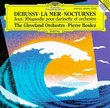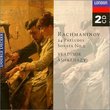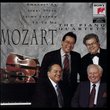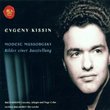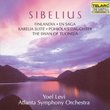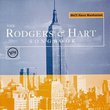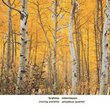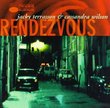| All Artists: Mendelssohn, Remmert, Chamber Oe, Harnoncourt Title: Mendelssohn: Midsummers Night Dream Members Wishing: 0 Total Copies: 0 Label: Teldec Original Release Date: 1/1/1993 Re-Release Date: 10/1/1993 Album Type: Import Genre: Classical Style: Opera & Classical Vocal Number of Discs: 1 SwapaCD Credits: 1 UPC: 090317488226 |
Search - Mendelssohn, Remmert, Chamber Oe :: Mendelssohn: Midsummers Night Dream
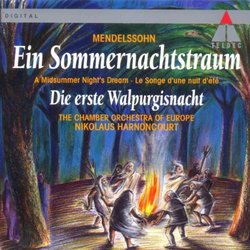 | Mendelssohn, Remmert, Chamber Oe Mendelssohn: Midsummers Night Dream Genre: Classical
|
Larger Image |
CD DetailsSimilarly Requested CDs
|
CD ReviewsA Wondrous Performance Edith Swanek | Anaheim, Ca | 04/06/2005 (5 out of 5 stars) "This is a truly wondrous coupling and performance. Die erste Walpurgisnacht sounds truly symphonic, like a cross between Berlioz' Fantastique and Beethoven's 9th. A great less-performed work. The Midsummer's Night to some might be a bit fast, but the energy is as authentic and welcome as can be." Best Available recording for Die erste Walpurgisnacht M. Cocchi | Wallingford, CT | 10/15/2009 (5 out of 5 stars) "I am only reviewing the second work (and cover art subject) on the album. Granted, there aren't many recordings available for "Die erste Walpurgisnacht", but this Harnoncourt recording easily surpasses all others that I've heard. The quality of both the recording and the choir is excellent. The soloists evoke the proper sense of emotion relative to the words that they are singing (the liner notes provide the words in 4 languages, including English and the original German in which it is sung -- making the booklet barely able to fit in the jewel case). The result is an awesome spectacle of sound, fury, and imagination. It is very much unlike the commonly-known Mendelssohn works. Walpurgisnacht (as based on the German tradition here, in a transcription of a poem by Goethe) is very similar to Halloween. So while this music is actually set for night of April 30th (leading into the morning of May 1st), it evokes the same demons, witches, and terror that is the hallmark of Halloween. If you have the stomach for something dark and dramatic (without becoming overly long and tiresome), then I recommend this piece and this recording highly." Mendelssoh's fantastic side, familiar and strange Santa Fe Listener | Santa Fe, NM USA | 12/11/2006 (5 out of 5 stars) "
The catalog doesn't need a new version of Mendelssohn's Midsummer Night's Dream, but this one is sung and spoken in German (hence the use of Sommernachtstraum on the cover), which is rare. It's reminder that Mendelssohn was setting a German translation of Shakespeare. Harnoncourt's performance is very fine. His speakers and singers are first-rate, and he evokes both the dreamy relaxation of the play and its mercurial swiftness. Tempos are on the fast side, phrasing is crips without being terse, and the execution by the Chamber Orchestra of Europe could be mistaken for the Concertgebouw. Mendelssohn wrote the overture to MND when he was 17, but he was thirty when he composed the rest of the music in 1840-41. In between, he set a ballad of Goethe's as a sedular oratorio from 1830, The First Walpurgis Night. It isn't one of his most notable works, since it falls short of expressing Goethe's text. Heresy and paganism seem rather lightly dealt with, and critics often point out that Mendelssohn, a composer uncomfortable with dissonance, was hardly the right choice to depict evil. The writer of the liner notes for this CD takes the posiiton that the music is meant to be satiric and humorous. Maybe. In any event, Harnoncourt gives his all, and there are moments of quality music, such as the overture, that I was happy to encounter. Among the seven soloists (too many for the practical staging of a 30+ min. work), Thomas Hampson and Rene Pape are the standouts, not surprisingly. the Arnold Schoenberg Choir is expert, as always. I think the best way to approach Die erste Walpurgisnacht is to tkae it as lihgtly as MND, disregarding the Victorian niceties of Mendelssohn's theology. As diabolical fairy music it's not as engaging as its famous disc mate, but enjoyable nonetheless." |

 Track Listings (2) - Disc #1
Track Listings (2) - Disc #1